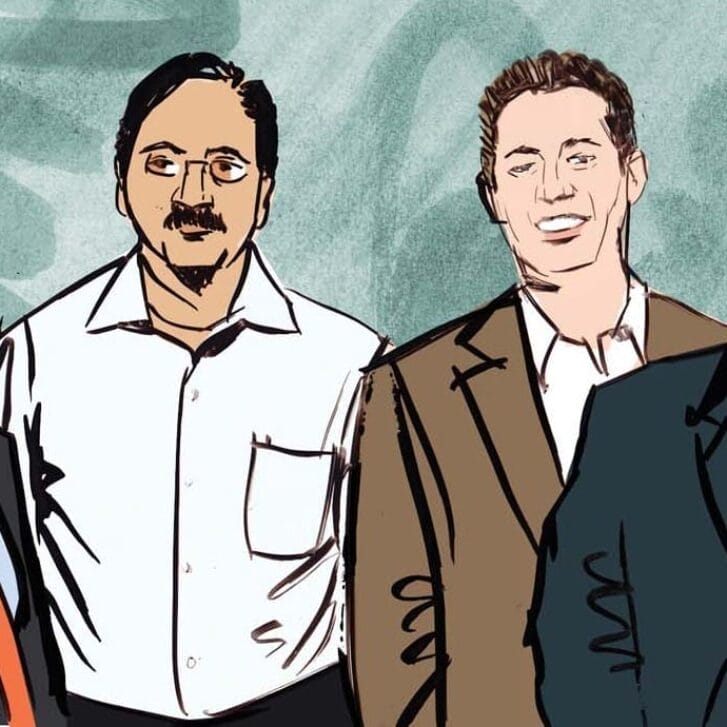Two massive questions have snuck up on the western world in 2016. Are Brexit, Bernie, and the Donald the new faces of politics? Is slow growth that only benefits a small segment of society the new standard of our economy?
I am worried that, unless we do something dramatic (and soon), the answer to both questions will be “yes” — which leads to troubling “new normals” in politics and the economy that will define the next decade or more.
Each of the core tenets from what we can now look back on as a golden age beginning with the fall of the Berlin Wall 27 years ago — the embrace of open and tolerant politics, global economic integration, and the information technology revolution — is now under serious threat from a visceral, if not violent, rejection of the status quo.
Right now things are looking dire for Donald Trump. Bernie Sanders has embraced Hillary Clinton. Brexit has entered what will be a protracted and headline-unfriendly period of back-room negotiating over ending the arcane entanglements tying Britain to the European Union.
Maybe 2016 will end up being more fascinating blip than birth of a new era, but I doubt it. The Wall Street Journal’s Gerald Seib got it right in saying that, even if Trump loses in a landslide, Trumpism is here to stay. Not to mention the strong parallels between Trump’s economic policy speech in Detroit this week, Elizabeth Warren’s at the Democratic Convention in Philadelphia, and Bernie Sanders’ during the primary season.
In contrast, Hillary Clinton is running essentially on experience — patriotic, globally-engaged, and steady-as-she-goes. Part Bill Clinton, part Rockefeller Republican. Competence, not charisma. Realism, not idealism. Grown-up responsibility, not naïve passion. Globalism over Americanism — to reverse Trump’s rendering of his campaign.
The polls and betting markets are telling us Hillary will win the White House, maybe quite easily. Not because her positions are so popular. Rather, because Trump’s outbursts and invective may make him unelectable.
Make no mistake, Trump has his finger on the pulse of American public opinion. His criticisms of trade (other countries benefit while we lose), migration (immigrants change society in ways we don’t like), and activist foreign policy (the costs far outweigh the benefits), reflect broad swathes of American public opinion. On trade and the U.S.’s global role, he sounds like an old school Democrat, which is why the Republican foreign policy elite can’t stand him.
How did we get to this place where Trumpism is the central tendency in public attitudes? The answer is that so many people are crying out “stop the world, I want to get off.” But what explains this? There is no doubt lots of merit to the sociological-cum-psychological zeitgeist perspectives like J.D. Vance’s Hillbilly Elegy.
But I think there is a lot to be said for a simpler economic determinism, as famously embodied in James Carville’s “It’s the economy, stupid” from Bill Clinton’s winning 1992 campaign. The extraordinary thing is that today’s politics-economics interaction is the polar opposite of the early 1990s.
Back then, Bill Clinton championed globalization and embraced the internet. But he was “Bubba,” the darling of working (and jogging) Americans. His personality certainly helped. But the economic outcomes mattered much more.
Under Bill Clinton, people at the top did very well and inequality increased dramatically. But most Americans got much better off during the 1990s too. Increasing standards of living for average Americans meant they could live with globalization, technological change, and growing inequality. Call it the “haves” and the “have mores.”
Fast forward to today. After Thomas Piketty, OccupyWallStreet, and the attack on the top 1%, we all know that America and the west today are even more unequal than they were in the 1990s.
The difference in the past decade compared with the 1990s is that average Americans are getting poorer, not richer, at the same time as people at the top are doing much better. This creates a stark “haves vs have nots” divide. And perhaps most troubling of all, the ranks of the “have nots” have risen a long way up the income scale.
Take a look at this dense but incredibly powerful graphic taken from a new study by the McKinsey Global Institute.
 Here are the two big takeaways:
Here are the two big takeaways:
- Taking inflation into account, 81% of Americans saw their incomes fall in real terms of the 2005-2014 decade. In the 1993-2005 period, only 2% of people suffered falling incomes.
- The U.S. is far from alone, with old Europe’s plight even worse. Sweden is the outlier, but strategies that work in very small countries typically are hard to export to much larger ones.
Think about the political implications of these jarring numbers. The notion of a “Trump ceiling” in his support (35%? 40%? Most think under 50%) makes analytic sense because we know his core constituency is less educated white men, a declining part of the voting age population.
But the McKinsey data give you a very different way to think about it the appeal of Trump (and Bernie Sanders) with a much higher ceiling. On this rendering, the vast majority of Americans are hurting economically, they are likely to be frustrated if not angered by what they see as the do-nothing DC establishment that they believe is complicit in their plight. They want to support politicians who aren’t tainted by any of it, and also rail loudly and passionately against it. To be sure, a lot of the people with declining incomes in the U.S. are unlikely to be Trumpers — above all, millennials who are struggling to find good jobs after college and are devoted to Bernie.
I am not saying Trump will win because average Americans are hurting economically. I am saying no matter how the election plays out in November, the fact that 4/5ths of Americans have suffered absolute declines in their incomes will be the central reality that the next president will have to come to grips with.
Editor’s note: This article was originally posted on LinkedIn on August 11, 2016.


























